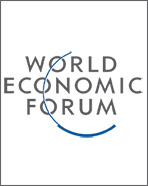European Russophobia and Europe’s Rejection of Peace: A Two-Century Failure
Europe has repeatedly rejected peace with Russia at moments when a negotiated settlement was available, and those rejections have proven profoundly self-defeating. Read more
 Cyber risk, long recognised as a cause for concern in the national security domain, is now also understood as a threat from the macroeconomic point of view, as an increasing share of value added is produced through ICT-enabled means. In 2012, information industries alone accounted for 6% of total value added, 4% of employment and 12% of total fixed investments in the OECD area, while ICT-related patents made up 40% of total patents filed under the Patent Cooperation Treaty (OECD 2014, 2015). In 2014, the digital sector – a narrow subsample of all ICT-enabled industries – employed 1.4 million people and accounted for 7.3% of the economy in the UK (UK Department for Culture, Media and Sport 2016). These are very conservative lower bounds for the size of the value added provided to the economy as a whole by digital technology. An alternative, suggestive description of the pervasiveness of digitalisation was proposed by the World Bank (2016) by picturing a typical day in the life of the internet.
Cyber risk, long recognised as a cause for concern in the national security domain, is now also understood as a threat from the macroeconomic point of view, as an increasing share of value added is produced through ICT-enabled means. In 2012, information industries alone accounted for 6% of total value added, 4% of employment and 12% of total fixed investments in the OECD area, while ICT-related patents made up 40% of total patents filed under the Patent Cooperation Treaty (OECD 2014, 2015). In 2014, the digital sector – a narrow subsample of all ICT-enabled industries – employed 1.4 million people and accounted for 7.3% of the economy in the UK (UK Department for Culture, Media and Sport 2016). These are very conservative lower bounds for the size of the value added provided to the economy as a whole by digital technology. An alternative, suggestive description of the pervasiveness of digitalisation was proposed by the World Bank (2016) by picturing a typical day in the life of the internet.
Not only is digitalisation spreading fast, but by its very nature it deepens the level of interconnectedness within the economy. Hence, the impact of cyber attacks goes beyond damage caused to individual victims.
The article's full-text is available here.